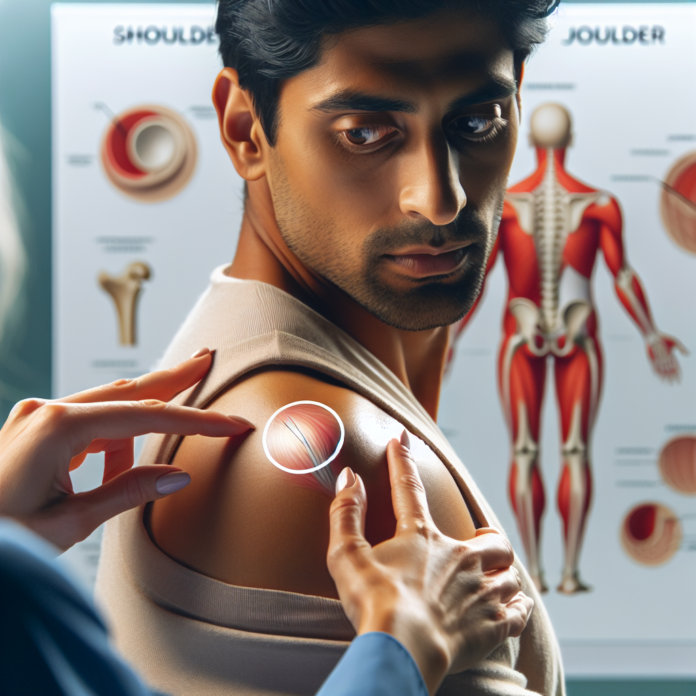After undergoing shoulder surgery, particularly a rotator cuff repair, many patients find themselves anxiously attuned to the sounds and sensations of their recovering joints. One common occurrence that often prompts concern is the clicking or popping sounds that can emerge during movement. Are these noises indicative of a problem, or are they simply a byproduct of the healing process? In this blog, we will delve into the possible causes of clicking and popping in your shoulder post-surgery, drawing insights from the expertise of Dr. David Guyer, a triple board-certified orthopedic surgeon and sports medicine specialist. By understanding the nuances of shoulder rehabilitation, you can gain peace of mind and better navigate your recovery journey.
Understanding Clicking and Popping in the Shoulder
One of the most common concerns among patients who have recently undergone shoulder surgery is the emergence of clicking or popping sounds. While these noises and sensations might initially trigger alarm, it’s important to understand that they are often a normal part of the healing process.
- Inflammation and Tissue Healing: One reason for these sounds is the presence of inflammation or thickening of the bursa, which is a fluid-filled sac that acts as a cushion between bones and tendons. Post-surgery, inflammation is a natural response as the body works to heal itself, which may lead to changes in the way structures move against each other, resulting in clicking or popping sounds.
- Post-Surgical Stiffness and Muscle Weakness: After surgery, the shoulder may be stiff, and the muscles around it weakened, especially if they’ve been immobilized for a period to support healing. This stiffness can lead to abnormal shoulder mechanics as simple movements attempt to break through the stiffness, often resulting in audible clicks or pops.
- Abnormal Mechanics: The joint may temporarily develop abnormal movement patterns as it recalibrates after surgery. This is not uncommon and can be attributed to the altered dynamic between the repaired tissues, muscles, and joints as they regain their former range of motion and strength.
When to Be Concerned
While clicking and popping are often harmless, there are circumstances under which these symptoms might warrant further investigation:
- Persistent Symptoms: If the clicking or popping persists well into the rehabilitation period, it may be prudent to consult with your healthcare provider. Long-term symptoms could suggest other underlying issues, such as insufficient healing or mechanical problems that might need addressing.
- Accompanying Pain or Swelling: If these sounds are accompanied by significant pain, swelling, or any new symptoms, it’s important to seek medical advice to rule out complications such as infection or improper healing of the surgical repair.
- Functional Limitations: Any significant restrictions in shoulder function, decreased range of motion, or weakness that doesn’t improve over time should be evaluated by a professional.
Post-Surgery Rehabilitation and Management
The path to recovery from shoulder surgery involves patience, dedication, and adherence to prescribed rehabilitation programs. Here are some strategies to help manage and potentially reduce clicking and popping during recovery:
- Physical Therapy: Engage in a structured physical therapy regimen under the guidance of a qualified therapist. Rehabilitation exercises are designed to restore strength and flexibility in the shoulder, helping to optimize joint mechanics and reduce abnormal clicking and popping.
- Consistent Monitoring: Keep track of any changes in your symptoms. Document if the clicking or popping worsens or improves, as this information can be valuable to share with your healthcare provider during follow-up visits.
- Adequate Rest: Allow your shoulder adequate time to heal. Overexerting or using the shoulder too aggressively before it’s ready can exacerbate symptoms.
- Regular Follow-Up Appointments: Schedule and attend regular follow-up appointments with your surgeon or orthopedic specialist to monitor your recovery progress.
Expert Resources and Support
For individuals navigating shoulder surgery recovery, accessing reliable resources and expert support can make a significant difference. Dr. Guyer, for instance, offers an insightful e-book titled “The Arthritis Solution,” available for free, which provides valuable information on managing shoulder arthritis and maintaining joint health.
Additionally, engaging with community forums or support groups where you can connect with others who have undergone surgery can offer emotional and practical support. Sharing experiences and tips can help to alleviate anxiety and provide encouragement during the rehabilitation process.
In summary, while clicking and popping in the shoulder post-surgery can be disconcerting, they are commonly benign and part of the body’s natural healing process. By understanding the potential causes, monitoring symptoms, and following a prescribed rehabilitation plan, you can help ensure a smooth and effective recovery. As always, if there are any concerns, a consultation with your healthcare provider can provide clarity and peace of mind.
